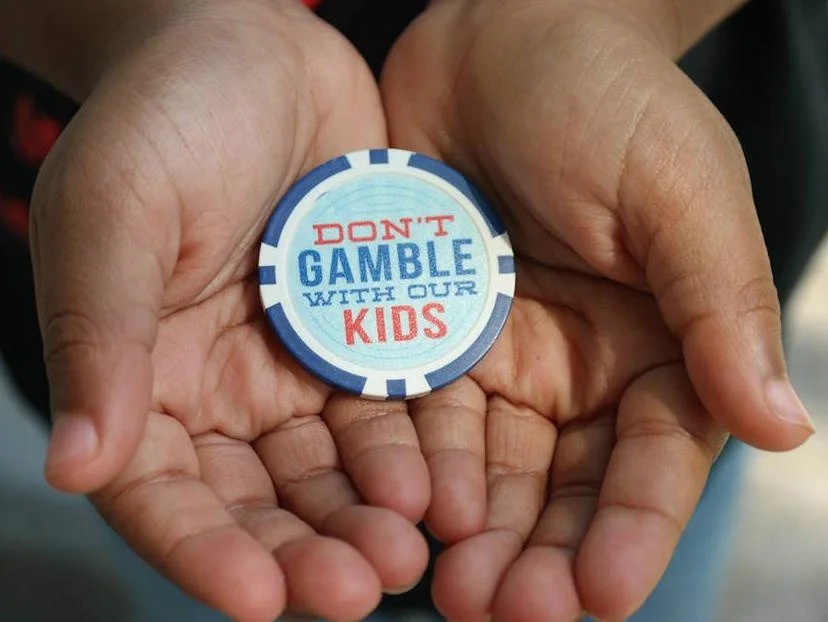Preventing Adverse Childhood Experiences With the Power of 3
This post is made possible with support from the American Academy of Pediatrics through a cooperative agreement with the Centers for Disease Control and Prevention. All opinions are my own.
The funny thing about the 21st century is that we’re finding more and more definitions for things that have always existed. I think that, in the long run, this will help us put so much of our lives into a better perspective.
Take the term ACEs. I first heard the term Adverse Childhood Experiences, or ACEs, while working at MomsRising in the context of our Early Learning work. I was intrigued by this subject, so when I had a chance to take part in a meeting about ACEs with the Centers for Disease Control, the American Academy of Pediatrics, and a few of my fave influencers, I jumped at the chance.
As I’ve learned more about what ACEs are, I’ve come to understand that I have experienced a few of my own. From a drastic move at the age of 4 to unwanted sexual contact as I entered double digits, it seemed that ACEs were everywhere when I looked back on my childhood.
Still, no place were other children’s ACEs more undeniable to me than at the office, from looking at dismantling the school-to-prison pipeline to the gut-wrenching child separation that is STILL taking place at our borders. I keep thinking about those kids, y’all. Keep thinking about how these traumatic experiences are shaping generations to come. I wonder how many ACEs those kids are going to experience by the time they have grown out of childhood. This knowledge drives me to work harder, but the thought also makes me realize that we need to delve deeper into what adverse childhood experiences are and ways in which we can do something about it. We have to name something before we can defeat it, right?
What Are ACEs?
Adverse Childhood Experiences (ACEs) are defined as experiences that might be traumatic to children during the first 18 years of life. These experiences include abuse, neglect, and challenges in the household among others.
Yours truly, right before being uprooted from everything I knew and transported to New York City.
The list is not small. And experiencing adversity in childhood is not uncommon. It’s important to know is that there are lots of people out there who have experienced ACEs without even knowing it had a name. It’s important for us to name a thing if we are looking to overcome it.
While they are common, we must also know that ACEs are not just these experiences floating out there on their own. They are not childhood memories that we can just look back on. ACEs have real implications on behavior and health.
As a mother to a highly sensitive and intuitive child, I also have a vested interest in learning more about ACEs and understanding them the best I can because one of my goals is to make sure I prevent any ACEs in the life of my child. I know I can’t control everything, but I believe that there are things that can be done in order to minimize ACEs. The more you know, right? So, let’s get to the knowing part.
A study conducted by the CDC surveyed over 17,000 people and performed physical exams to determine current health status. From that study, we have gleaned a lot of information about how adverse childhood experiences shape us as adults.
People experiencing 6 ACEs have a shorter lifespan than those who do not. That was a BIG thing that stood out for me. So often, especially for those in the margins, we experience trauma and challenges during childhood but fail to understand the implications that those experiences have across our life.
What Can We Do?
It’s important that we provide children with safe, stable, nurturing relationships and environments (SSNREs). How can we, as a society, help with this? We can look at policies that support and boost those environments!
A few policies that we can actually work toward implementing come to mind when I think about this trend.
Childcare can cost as much as some colleges these days. And quality childcare is sometimes hard to come by because of those rising costs. Supporting policies such as the Child Care for Working Families Act will ensure that parents have access to affordable, high-quality childcare and pre-K. It’s a win-win because, if passed, this bill will also improve compensation and training for childcare workers, which helps to keep kids safe.
We know that we are one of three developed nations without a federal paid family leave policy, and did you know that 54% of moms don’t have a single paid sick day? That seems bananas, right? It’s true, though. Something as simple as ensuring that people are able to take time off to care for themselves and their families can be a huge thing during a time of need.
Having policies that support parents and their children can help contribute to those safe, stable, and nurturing environments that we know children need to thrive. This is one way in which we can minimize ACEs in children today.
How Can You Help?
I’m a BIG proponent of “it takes a village.” To me, that doesn’t just apply to helping my neighbor by watching her kid if she has to go to the doctor. It means that we take an active role in learning about legislation that will directly impact all of our kids.
Recently, I had to think hard about “finding my three,” the three people or organizations that I know I can count on when I need help.
As we look at community, I want to challenge you to find your three organizations that work toward those safe, stable, nurturing relationships and environments that we need in order to prevent ACEs, and then find out how you can get involved and take an active role as a community member at large.
Here are my three:
MomsRising.org/MamasConPoder.org because of their work across these legislative priorities including paid leave, paid sick days, equal pay, and affordable childcare.
Families Belong Together for their tireless work to ensure that families are not separated at the border. I can think of few experiences more traumatic than what children at the border are experiencing, and I’m grateful to the coalition for the work that they do.
Color of Change is the nation’s largest online racial justice organization. I can count on them to be at the forefront as we battle the wave of hate we have been experiencing in this country that certainly affects our children.
Who Are Your Three?
Let me hear it! Who are your three? You can leave them in the comments OR you can share them on social using the hashtag #FindYour3
Interested to learn more about ACEs? Hop to another post at Life in Pumps, World in Four Days, Let's Talk Kids Health, Boston Mamas, or Life is Sweeter by Design.



